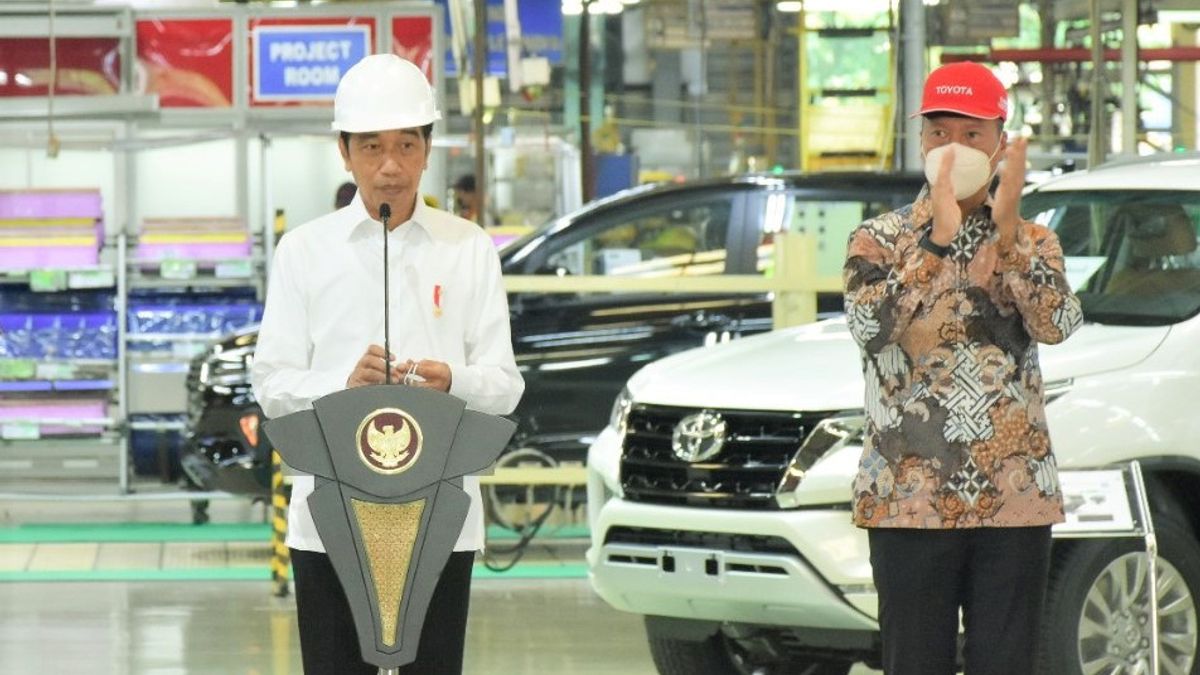JAKARTA - The Ministry of Industry appreciates BUMN and private companies that work together to accelerate the development of an integrated electric vehicle ecosystem in Indonesia. This collaboration was realized by Electrum as a joint venture company of Gojek and TBS Energi Utama, together with Pertamina, Gogoro, and Gesits.
"Indonesia has declared its readiness to enter the era of electric vehicles as directed by the President as stated in Presidential Regulation No. 55 of 2019 concerning the Acceleration of the Battery Electric Vehicle Program for Road Transportation," said Industry Minister Agus Gumiwang Kartasasmita in Jakarta, Wednesday, 23 February.
Agus said that the Ministry of Industry fully supports the development of the electric vehicle ecosystem from upstream to downstream. This strategic step is expected to make Indonesia a country that is able to dominate or become a producer of electric vehicles with global competitiveness.
"As the President said, the government is very serious about getting into new and renewable energy, including towards electric vehicles," he said.
This will also be a priority issue brought up by the Government of Indonesia at the G20 Summit, one of which will discuss the transition to sustainable energy, including accelerating the development of the electric vehicle ecosystem.
In the national automotive industry roadmap, the Ministry of Industry sets 20 percent of the use of electric battery-based vehicles by 2025, in line with the automotive industry's efforts to continue to improve efficiency for types of Internal Combustion Engine (ICE), Hybrid, and Plug-in Hybrid technologies.
"In the future, hydrogen-based fuel cell technology has also been included in the roadmap for the national automotive industry, with a passion for industrial production of environmentally friendly vehicles," said Agus.
Furthermore, in the development of the electric vehicle industry ecosystem, the domestic automotive industry is targeted to produce 600 thousand electric cars and electric buses by 2030, so that with this figure it will be able to reduce fuel consumption by 3 million barrels and reduce CO2 emissions by 1, 4 million Tons.
"This strategic effort is also expected to support the fulfillment of the Indonesian government's commitment to reducing greenhouse gas (GHG) emissions by 29 percent in 2030, and in 2060 it will enter zero carbon emissions or net zero carbon," he added.
Agus added, in order to follow up the mandate of Presidential Regulation 55/2019, the Ministry of Industry has issued two Regulations of the Minister of Industry.
First, Regulation of the Minister of Industry Number 27 of 2020 concerning Technical Specifications, EV Roadmap and Calculation of Domestic Local Content Levels (TKDN), which serves as a guide or explanation for automotive industry stakeholders related to strategies, policies and programs in order to achieve Indonesia's target as a production base. and export of electric vehicle hubs.
Second, Regulation of the Minister of Industry Number 28 of 2020 concerning Battery-Based Electric Motor Vehicles in Completely Decomposed and Incompletely Decomposed Conditions, as part of the development stage of the industrialization of Battery-Based Electric Motorized Vehicles (KBLBB) in Indonesia.
Director General of Metal, Machinery, Transportation Equipment, and Electronics (ILMATE) Taufiek Bawazier said that apart from facing the pandemic, there are still many challenges that must be the main concern of the automotive industry. Starting from climate change mitigation, reducing air and noise pollution, to energy conservation through the use of new and renewable energy. This dynamic has also driven the transformation of the transportation sector towards green mobility or low emission green mobility.
"Electric vehicles have become a global trend and have been massively used in urban mobility," he said.
In fact, electric vehicles not only significantly reduce CO2 emissions and other greenhouse gas emissions, but also offer a mode of transportation that is convenient, efficient, easy to use, sustainable, and improves lifestyle.
"The form of sustainability in the automotive sector does not stop there. This is because the government still wants to see the industry develop new technologies, materials or materials that are environmentally friendly, and sustainable inclusivity in the production of motorized vehicles," he explained.
The English, Chinese, Japanese, Arabic, and French versions are automatically generated by the AI. So there may still be inaccuracies in translating, please always see Indonesian as our main language. (system supported by DigitalSiber.id)








